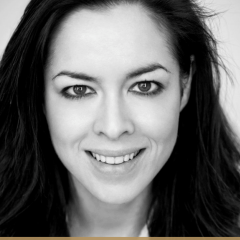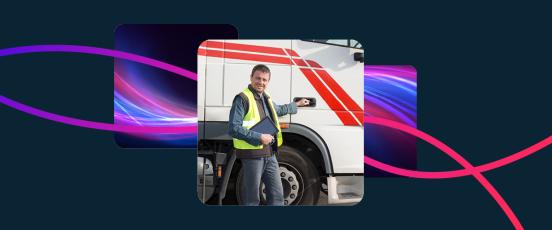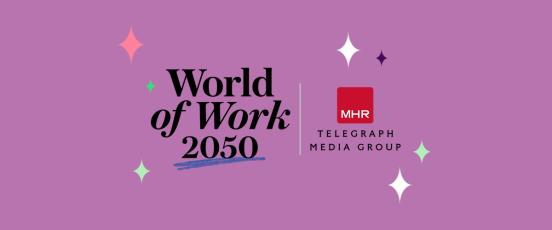AI Recruitment to Boost Diversity and Ultimately Innovation

As we sit at this time of uncertainty there are phrases that reappear as lodestars to help companies navigate forwards as unscathed and resilient. To evolve and gain some sort of competitive edge in whatever ‘new normal’ emerges.
Innovation is a prime example. A term that I have in the past been hard on believing it to be overused and often under actualised.
But in the last three months we have come together in collectives and as collaborators to produce hugely innovative solutions to very real and sudden challenges. From rapid PPE production to activating employee work from home initiatives, we have in the face of adversity been highly ingenious. Part of my work has been to analyse these practices to glean insight and learnings on what made them successful and how we can make use of this insight to remain, as we move forwards, highly innovative.
There is no surprise that at the heart of these innovative initiatives is diversity. Cross-discipline individuals with varied skill sets and experiences coming together to share perspectives and innovate. To me innovation has always been at its heart a cross discipline, collective process. While many of the recent examples have been of companies or individuals from different organisations coming together, the learnings can be taken and utilised inside a company.
Diversity is the simplest way to increase a team's collective intelligence. This drives innovation within a company. Diversity of experience, of skill sets, of background, even neurodiversity are key. And yet recruiters often fall into a series of biases and traps that mean opportunities for diversity are often missed in the hiring process. This is where technology can help. AI can be a vital tool in helping your company ensure diversity of hiring, not replacing recruitment officers but working alongside them. In this article, I will explain how.
The global diversity and inclusion thought leader Anka Wittenberg so poignantly notes “Innovation is most likely to come from parts of us that we don’t all share.” Novel solutions that most often come from new perspectives. From collectives; as working in a group brings together different perspectives. The collective intelligence of the group depends on numerous factors, a central one is diversity. The famous MIT study by Thoman Malone showed that the simplest way to increase collective intelligence was to add more women to a group - it immediately increases diversity. Likewise, the more socially perceptive the members of the team are, the more collective intelligence the group holds. But diversity and the soft skills that underpin social perceptiveness are often unintentionally overlooked in the hiring process.
This is where AI can help. Now we all know that AI has its own biases. But we are entering a new era of awareness of this and with more attention and ironically diversity of coders in the writing of programs, this is being addressed. But despite this AI has some serious strengths. As Aleksandra Mojsilovic, research fellow in AI at IBM has pointed out, AI, used correctly, has “a shot at being better at decision-making than we humans are, particularly in hiring,” and “it’s not about replacing human intelligence, but rather about complementing it.”
So how can AI complement human recruiters? Firstly processing ability. If you want a diverse pool of talent, you need to spread the net as wide as possible. This takes time, AI can very quickly spread your hiring net as wide as possible, considering huge numbers of people in all sorts of locations. Secondly, AI knows how to speak to them. Language is often underrated when we think about the challenges of recruitment. Recruitment is also part sales pitch. AI that has been programmed to understand the communication styles of different candidate groups can talk to them clearly and passionately to, as strange as it sounds, make a real connection.
Next comes AI’s ability to hone in on skills sets. AI can identify candidates with skill sets that are highly appealing to a company but may be overlooked normally as their title or previous role does not necessarily fit with the current opportunity. This can be vital to bring in edge thinkers from other disciplines with new perspectives. And while yes, like humans, AI can have unconscious bias towards certain genders, races and minorities, AI can be programmed very easily to overcome them.
Even in the interview process humans can be supported by AI. Again, AI can avoid human bias stripping away extraneous factors such as gender or race. Moreover, AI is impartial to answer bias - as sadly yes, we have a natural bias towards those who share or echo our own opinions. Digital interviewing can put some candidates off. They are after all interviewing you too and an AI interview can seem highly impersonal. However for some an AI interviewer is preferred. Take those who are ‘neurodiverse’. People who have less common brain processes in terms of how they work and interpret information, such as those with autism or ADHD. These individuals are of huge value, only now being realised, to any company, but they often struggle in real life interviews, finding the high pressure social situation a challenge. To them an AI interviewer can allow them to shine.
We know that there will never be an AI who can replace a human recruiter, the development of interpersonal relationships is far too crucial. But, there is irrefutable evidence now to show that humans working with AI at various stages in the recruitment process are far more effective than on their own. With innovation a focus in the times ahead of us and diversity a key to unlock it, wise companies should be taking steps to become allies with technology and integrate AI into their recruitment process.



